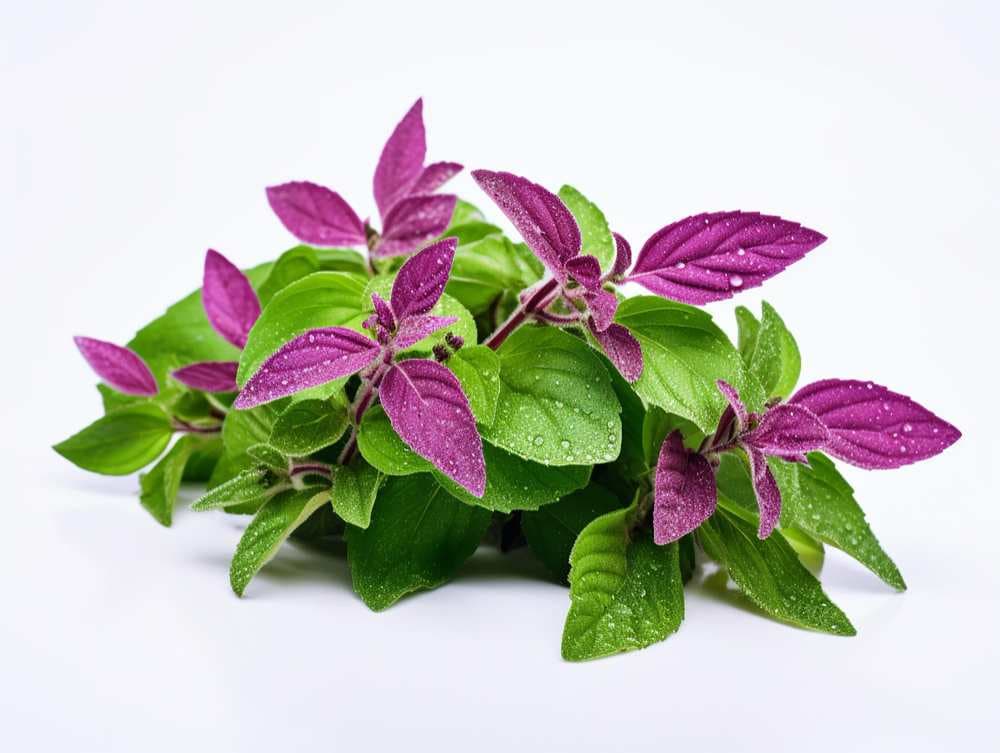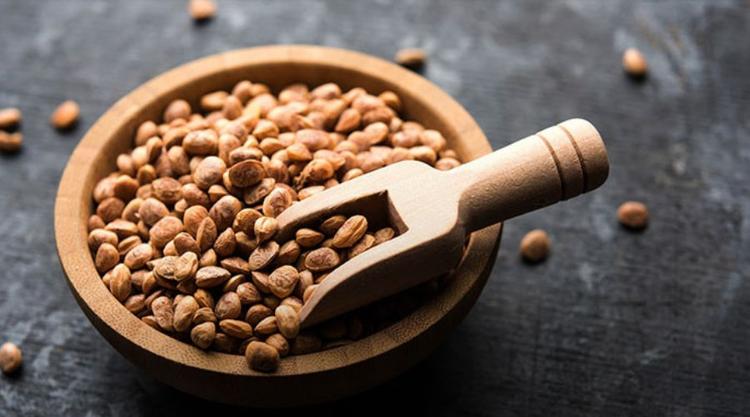Health Benefits of Tulsi: Significance, Nutritional Value, and Uses

Medically Reviewed By
Dr Divya Rohra
Written By Kirti Saxena
on Apr 7, 2024
Last Edit Made By Kirti Saxena
on Apr 26, 2024

The Tulsi plant is found in almost every house in India. Why? This holy plant not only offers health benefits but also has a lot of significance in Hindu culture and is worshiped by them.
Many of you already know its excellent medicinal properties and medicinal uses. Tulsi is known as the "queen of herbs" for its numerous health benefits. Tulsi is of great significance in Ayurveda and also recognizes that it can help cure a range of diseases, including tumorous growths. Studies show it can help treat respiratory, digestive, and skin diseases. Also, it has been proven effective in treating various infections and diseases like liver, diabetes, and cholesterol.
We live in an unhealthy environment with the risk of many diseases like diabetes, obesity, cancer, hypertension, and more. But don't worry; we are blessed with a herb that has tremendous healing power. Here in this blog, let's learn more about the health benefits of tulsi leaves, along with how to use them in day-to-day life.
Significance of Tulsi: A Nature's Healing Herb
Indian mothers never forget to use Tulsi leaves in day-to-day life. Whether it's a cup of tea or soups and ordinary vegetables, they always try to get more and more benefits from tulsi leaves to keep you healthy and strong. Tulsi is rich in antioxidants and has anti-inflammatory properties, which makes it effective in treating various diseases and infections like colds, coughs, and respiratory infections. It also boosts immunity power, improves digestion, and reduces stress levels. Tulsi has tremendous healing power; therefore, consuming tulsi leaves can improve your overall health. Three main types of Tulsi are seen growing in India.
- Bright green leaves called Ram Tulsi
- Purplish green leaves called Krishna Tulsi
- Common wild Vana Tulsi.

What is the Nutritional Value of Tulsi/Holy Basil?
Holy basil, also known as tulsi, is an herb revered in Ayurveda for its medicinal properties. But beyond its medicinal uses, tulsi also boasts a decent amount of nutrients. It contains medicinal properties and is rich in vitamins A, C, and K minerals like calcium, magnesium, phosphorus, iron, and potassium. Let’s have a look at its nutritional value per 100 g.
- Fats- 0.6 g
- Calories- 22
- Carbohydrates- 2.7 g
- Dietary fiber- 1.6 g
- Sugars- 0.3 g
- Protein- 3.2 g
- Sodium- 4 mg
- Potassium- 295 mg
- Vitamin K- 1540 mcg
Medicinal Properties of Tulsi
Do you have a tulsi plant in your house? Yes! Your grandma or mother has used Tulsi leaves for years because they know their medicinal properties. Do you know how helpful this plant is to cure diseases? Let's explore its medicinal properties in detail-
- It helps to cure fever, common cold, cough, and headaches.
- Aids to treat insect bites.
- Tulsi helps to treat asthma and kidney stones.
- Have anti-inflammatory property
- Its antiemetic properties aid in relieving nausea and vomiting.
- Its anti-diabetic property helps to cure diabetes
- Its hypotensive properties help to aid blood pressure and heart problems.
- Tulsi’s hypolipidemic Property lowers cholesterol.
- Tulsi’s analgesic property relieves pain
- Its antiasthmatic helps to reduce asthma symptoms.
- Its Hepatoprotective properties promote liver health
- Tulsi's anti-stress properties promote relaxation
- Tulsi’s anticarcinogenic property prevents cancer progression.
Top Benefits of Tulsi Leaves To Maintain Good Health
Tulsi, also known as holy basil, is a revered herb in India with a rich history of medicinal uses. Here are 5 key health benefits of tulsi, along with ways to add it into your routine:
Tulsi to Boost Immunity
Tulsi is a great immunity booster, rich in vitamin C and Zinc, essential for a healthy immune system. It contains anti-inflammatory, antibacterial, and antifungal properties that keep the infections away and keep you strong and healthy.
How to use tulsi to boost immunity?
- Try tulsi tea leaves for a refreshing and immunity-boosting morning.
- You can also add in your soups to get more benefits.
Also read- Best foods to boost immunity
Tulsi to Combat cold, cough, and Respiratory Infections
Tulsi contains Camphene, cineole, and eugenol, which helps to soothe coughs, congestion, and respiratory discomfort. Moreover, it has anti-inflammatory and antimicrobial properties that relieve symptoms of severe colds, coughs, asthma, bronchitis, tuberculosis, influenza, and fever.
How do you use Tulsi for cough and cold?
- Inhale the steam from the boiled tulsi leaves.
- Take a few tulsi leaves with honey and ginger to relieve the cough.
Tulsi to Manages Blood Sugar Levels
If you are prediabetic or have type 2 diabetes, then start consuming Tulsi to lower your blood sugar levels. Studies show that tulsi helps to reduce and prevent the symptoms of high cholesterol, insulin resistance, hypertension, obesity, and more. Furthermore, don't forget to take a regular Hba1c test to monitor your blood sugar levels.
How to use Tulsi for diabetes?
- Consume 2-3 tulsi leaves on an empty stomach to lower your blood sugar levels.
- You can also consume tulsi tea or tulsi water to get its goodness.
Also read- Easy Exercises For Diabetes Patients to Control Blood Sugar Levels
Tulsi to Lower Blood Pressure and Stress
Tulsi contains Ocimum Sides A and B, which help reduce stress and balance the neurotransmitters serotonin and dopamine in the brain. Eugenol is beneficial for lowering cholesterol levels in the blood. Tulsi's adaptogenic properties are believed to help the body adapt to stress and promote feelings of well-being.
How do you consume Tulsi to lower blood pressure?
- Consume tulsi water or tulsi tea daily.
- Chew raw Tulsi/basil every day on an empty stomach.
Also read- Top 10 Foods to Control High Blood Pressure Naturally
Tulsi to Treat Kidney Stones
Tulsi contains mild diuretic and detoxifying agents, which help to reduce uric acid levels. Holy basil contains acetic acid, which helps to break down stones.
How to use Tulsi for kidney stones?
- Drink tulsi tea in the morning.
- Chew tulsi leaves on an empty stomach.
Tulsi for Gut Health
Tulsi's antibacterial properties can help improve digestion and alleviate stomach upset. It helps to flush out toxins and cleanses the stomach by easing digestion. Tulsi leaves are rich in antioxidants that aid in digestion.
How to use it?
- Chew fresh tulsi leaves after a meal for a soothing digestive aid.
Tulsi Benefits for Skin
Tulsi contains antibacterial properties that help to fight acne problems.
Studies show that tulsi supports healthy skin aging. Its anti-inflammatory properties help reduce pigmentation, redness, irritation, and swelling.
How to use it?
You can use tulsi in various ways to get its skin-healthy benefits, including tulsi tea, facemask, and facial steam.
Tulsi for Insect Bites
The anti-inflammatory, analgesic, and antihistamine properties of tulsi help treat insect bites, ringworms, and skin infections.
How to use it?
Apply tulsi juice to the affected area to get relief.
Tulsi to Reduce Fever
Tulsi has been traditionally used for treating fever.It contains antimicrobial and immunomodulatory properties that boost immunity. The antipyretic and diaphoretic activity helps to induce sweating and helps to normalize the body temperature during fever.
If you are experiencing fever for more than 2-3 days, take the essential package to know the cause and get early intervention and treatment.
How to use Tulsi to reduce fever?
Make Tulsi Kadha. Add 15 to 20 Tulsi leaves, ginger, and black pepper.
How to Consume Tulsi Daily?
You can use and consume tulsi in everyday life in different forms, including-
- Tulsi Tea
It is a classic and easy way to benefit from Tulsi goodness.
How to make Tulsi Tea?
Steep 5-7 fresh tulsi leaves in hot water for 5-10 minutes, and add honey or lemon for taste.
- Tulsi Kadha
The people having respiratory issues must drink tulsi kadha.
How to make Tulsi Kadha?
Boil tulsi leaves with ginger and cloves in water until the volume reduces by half. Strain the extract and sip warm kadha throughout the day.
- Tulsi Leaves
Chewing on a few fresh tulsi leaves in the morning is a simple way to consume tulsi and freshen your breath.
- Tulsi Powder
For convenience, you can use tulsi powder. Mix a teaspoon of tulsi powder with honey or ghee (clarified butter) for a morning power shot. You can also add it to smoothies and yogurt or sprinkle it over vegetables.
How much Tulsi is recommended daily?
Experts believe that two to three tulsi leaves on an empty stomach are good for promoting overall health.
However, health experts advise to consume-
- Tulsi Capsule/Tablet - 1-2 capsules/day.
- Tulsi Tablet - 1-2 tablets/day.
- Tulsi Powder - ¼- ½ teaspoon twice a day.
- Tulsi Juice - 5-10 ml/day
- Tulsi Drop - 1-2 drops twice a day.
- Tulsi Oil - 3-4 drops, 4-5 times a day.
Who should avoid consuming Tulsi?
Tulsi benefits all categories of people and does not cause any side effects. However, there are specific people who must avoid taking tulsi and must consult their doctor before consuming tulsi.
- Pregnant women
- People with bleeding disorders
- Men with low sperm count or infertility disorders
- Preparing or recovering from surgeries

Ready to embrace the benefits of Tulsi?
Tulsi is a magical herb and can be found easily. It is the "queen of herbs" and offers a treasure trove of health benefits. From boosting immunity to promoting gut health and managing stress, this wonderful herb can be a valuable addition to your well-being routine.
Don't forget to consult your doctor before consuming Tulsi if you have any health issues. Moreover, by adding tulsi to your daily life, you can harness its natural healing properties and experience health benefits. So why not add tulsi to your daily life? Start slow, explore how you would like to consume tulsi, and find what works best for you.



